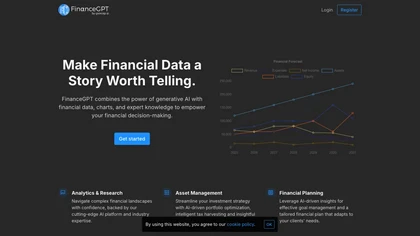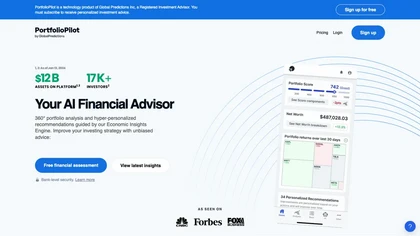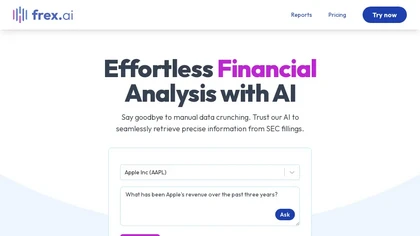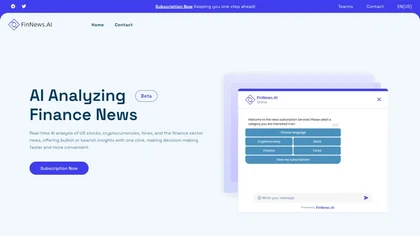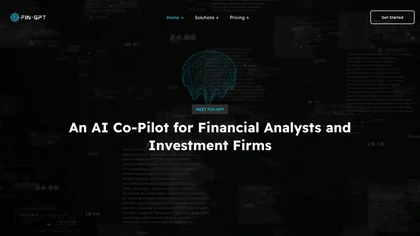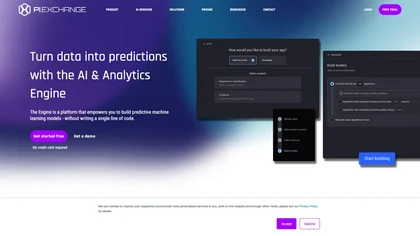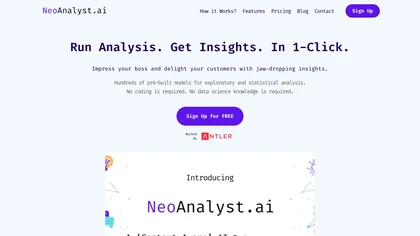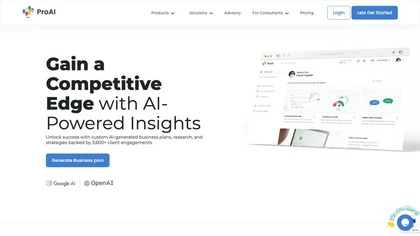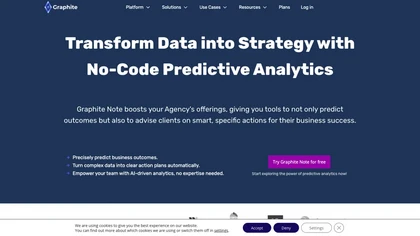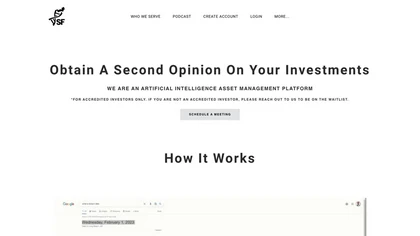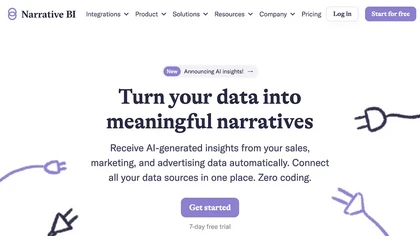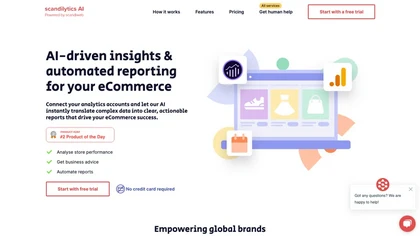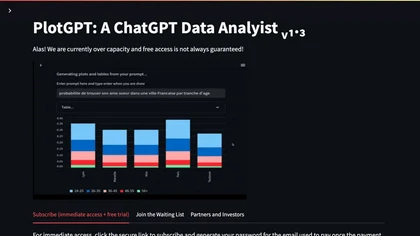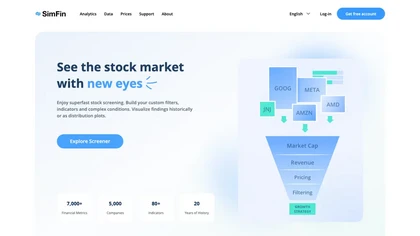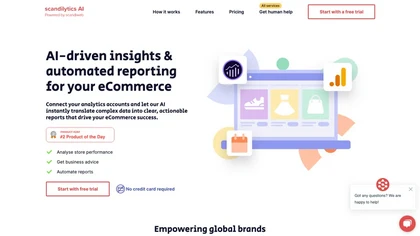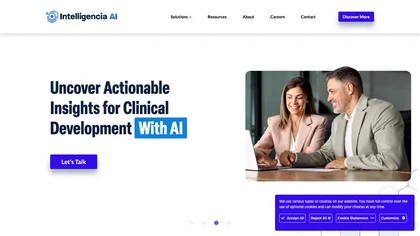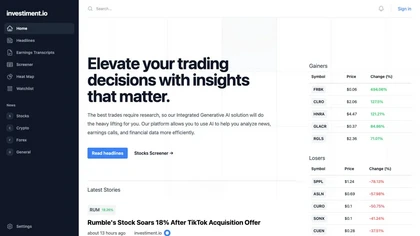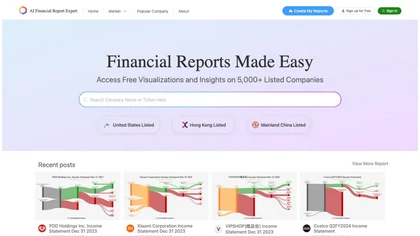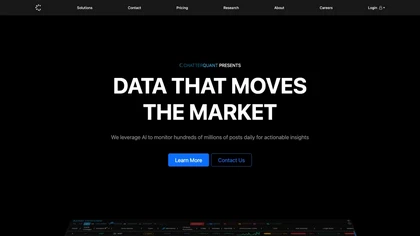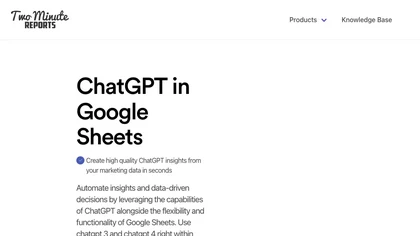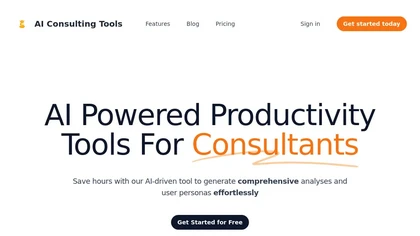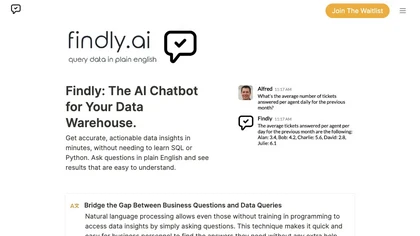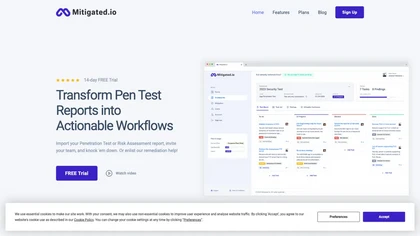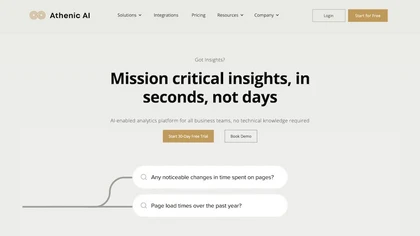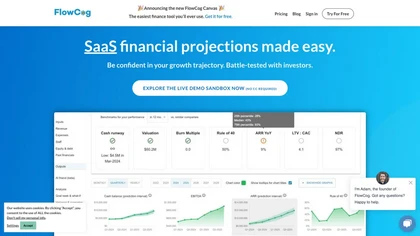AI use cases for Financial Analysis
Generative AI can be applied in various applications for financial analysis. Here are some examples to explore below for inspiration with AI tools to get you started with using AI in financial analysis.
🛠️ 70 AI tools for Financial Analysis
Explore a dynamic list of some of the most popular tools to get you started with various AI use cases and applications for Financial Analysis to streamline your workflows and productivity today.
FinanceGPT features
- Generative AI technology
- Customizable financial forecasting
- Real-time data aggregation
- Advanced analytics
- Targeted towards investors, financial managers, and accountants
FinCheck by Trezy features
- Financial health assessment
- Annual statements analysis
- Multilingual reports
- Privacy control
- Security features
Finalle features
- Twitter analysis
- Reddit analysis
- News analysis
- Blog post analysis
- Market insights
Bara Platform features
- Advanced artificial intelligence tool
- In-depth analytics and predictive insights
- Cutting-edge algorithms and machine learning capabilities
- Intuitive dashboard for visualizing complex data sets
- Actionable insights for strategic decision-making
PortfolioPilot features
- 360° portfolio analysis
- Hyper-personalized recommendations
- Economic insights engine
- Automatic risk identification
- Bank-level security
PortfolioPilot Insights features
- Personalized investment recommendations
- 360° portfolio analysis
- Tailored suggestions based on individual portfolio needs
- Continuous monitoring of the economy for risks
- Automated investment recommendations based on asset allocations
Futuresearch features
- Comprehensive risk assessments in 15 minutes
- Five-stage AI-powered workflow
- Daily analysis of new scenarios
- Search scenarios based on daily news
- Simulate future outcomes with accurate predictions
🔥
Create your account, save tools & get personal recommendations
Receive a weekly digest of our handpicked top tools.
Unsubscribe anytime
Frex features
- Retrieve precise information from sec filings using ai
- Engage with the ai in three ways: asking questions, creating charts, and generating reports
- Extract key data from sec filings and create professional powerpoint reports
- Offer information such as earnings per share, net income, and basic diluted earnings per share for companies like apple inc.
- Real-time access to knowledge-based information available up to september 2021
FinNews.AI -FREE features
- Real-time insights
- Quantitative analysis
- Predictive modeling
- Instantaneous analysis
- Anomaly detection
FIN-GPT features
- Data consolidation from various sources
- Affordable access to advanced tools
- Real-time data analysis capabilities
- User-friendly interface
- Enhanced decision-making through data-driven insights
Pi Exchange features
- End-to-end machine-learning tool
- Eliminates the need for coding
- Smart data preparation
- Model development
- Deployment functionalities
RAFA features
- Real-time insights
- Portfolio alerts
- Risk analysis
- Options activity monitoring
- Customizable AI agents
Uprise Embedded features
- AI-powered financial advisory platform
- Personalized financial optimization engine
- Automating regulatory compliance
- Concierge services for comprehensive financial planning
- Flexible integration options and white-label solutions
NeoAnalyst features
- Pre-built models
- Instant analysis queries
- Predictive analytics
- Visualize results through charts
- Context-aware analysis
ProAI features
- Business strategy generator
- Interactive Guidance and follow up
- Metrics monitoring and insights
- Market research
- Financial forecast
- Pitch deck generator
Graphite Note features
- Predict outcomes
- Recommend smart actions
- Analyze customer behavior patterns
- Personalize marketing strategies
- Optimize inventory
SageFusion features
- Trend forecasting
- Statistical models and financial statement analysis
- Risk management through portfolio hedging
- Transparent and liquid funds through Interactive Brokers
- Quick fund withdrawal within 48 hours
Streamlined Finance features
- Stock fundamentals analysis
- Stock filtering by volume, market cap, etc.
- Identification of undervalued stocks
- Insights on high-growth stocks and dividend stocks
- Summarization of earnings transcripts and news articles
Fortune features
- Automated transaction categorizations
- Detailed financial analytics
- Forecasting finances across various banks worldwide
- Real-time alerts for every transaction
- Advanced transaction search capabilities
BeatandRaise features
- Financial search
- Financial real-time information
- Company performance predictions
- Revenue insights
- Chatbot plugin
Narrative BI features
- All the metrics under one roof
- Natural language generation
- Anomaly detection
- Scheduled reports
- AI driven insights
- Slack chatbot
- Multiple data channels integrations
AI-FraudGuard Ecommerce features
- Contactless conversion
- Fraud prevention
- Transaction monitoring
- Compliance processes automation
- Real-time monitoring
Fama One features
- Asset management
- Portfolio optimization
- Real-time market data
- Automated trading strategies
- Risk assessment and management
FinanceGPT Chat features
- Build custom AI co-pilots
- Semantic search for understanding
- Document upload for tailored answers
- Data source connectivity
- Personalized financial insights
Scandilytics features
- Advanced analytics for store performance insights
- Business advice based on data analysis
- Automated reporting processes
- Connection with analytics accounts for data translation
- AI-based trend analysis and opportunity identification
Inc. features
- Real-time global threat assessment
- Continuous monitoring and analysis of vast data sources
- Actionable intelligence delivery
- Comprehensive insights into evolving threats
- Integration of advanced data analytics, machine learning, and predictive modeling
PredictEasy features
- Data preprocessing
- Data visualization
- Model building
- Automated machine learning
- Auditing data
Cyberriskai features
- Cybersecurity risk assessment
- Automated quarterly risk audits
- Nist cybersecurity audit framework
- Comprehensive assessment report
- Employee cybersecurity practices
PlotGPT
4.7PlotGPT features
- Generate infographics
- Provide investment ideas
- Present locations and travel choices
- Help with life decisions
Dark Pools AI features
- Financial crime detection
- Anomalous behavior detection
- Data mapping
- Machine learning
- Data visualization
Faraday features
- Predicting customer behavior
- Assessing customer potential
- Providing personalized recommendations
- Identifying at-risk customers
- Optimizing marketing campaigns
Predict Expert AI features
- Crafting unique AI models
- Integrating intelligent applications and APIs
- Tailoring AI models and applications to address specific business needs
- Real-time operational insights
- Monitoring performance in real-time
Incite Advisor features
- Real-time insights
- Highly proven algorithm
- Decades of data analysis
- Easy-to-use platform
- Cutting-edge AI technology
SimFin features
- Unlock 20+ years of financial history for 5,000+ companies
- Backtest dynamic portfolio strategies
- Visualize stock market metrics
- Customized filters and complex conditions
- Download quality financial data via API
RiskAssessmentAI features
- Automate security questionnaire responses
- Scan documentation
- Build knowledge base
- Support various assessment formats
- Collaboration between teams
Predict features
- Predict human behavior
- Optimize creatives
- Increase conversions
- Improve user engagement
- Unlimited pre-testing and benchmarking
AskExcel features
- Natural language processing for asking questions
- Automatic report and chart generation
- Data analysis for academia and research
- Market data and customer behavior analysis for businesses
- Language flexibility for communication
Data Analyst AI features
- Data Analyst AI
- Automated reporting
- Tailored marketing strategies
- Streamlined marketing efforts
- Secure data processing
Coginiti features
- Generating sql using natural language prompts
- Exploring, managing, and analyzing data in a collaborative data workspace
- Optimizing existing sql queries
- Providing detailed explanations and solutions to errors
- Explaining query execution plans for better optimization
- Supporting deep database and object store integration
- Focusing on enhancing query performance to decrease compute costs
F.I.R.E on track features
- AI-powered financial assistant
- Personalized recommendations based on goals
- Real-time financial assistance
- Income, expenses, and savings tracking
- Goal reminders and progress tracking
intelligencia.ai features
- Measuring the likelihood of success in drug development
- Identifying underlying drivers contributing to technical and regulatory risks
- Optimizing clinical trial design
- Standardizing risk evaluation processes
- Transparent and explainable AI features
investiment.io features
- Generative AI technology
- News and earnings calls analysis
- Stocks screener for real-time information
- Market stories and stock updates
- AI-driven insights for informed investment choices
FolioProjects features
- AI project management assistant
- Data-rich dashboards for analysis
- Project portfolio management workflow
- Enterprise asset management life cycle support
- Predictive, prescriptive, and generative AI capabilities
QuillAI features
- Document parsing
- SEC alerts
- Financial model generation
- Custom PDF uploads
- Multi-document AI chat
Magnifi features
- Conversational AI guidance
- Goal planning
- Investment search
- Comparison features
- Whole-portfolio tracking
Incremental ai features
- Retail media measurement
- Commerce analytics
- Portfolio management
- Predictive analytics
- Cross-channel commerce analytics
Finned features
- Generative AI technology
- Predict game outcomes
- Data-driven suggestions
- Fantasy picks
- Betting chatbot feature
AI Financial Report Expert features
- Create insightful and visually appealing financial reports for over 5,000 listed companies
- Access to free visualizations and insights
- Generate reports for popular companies across different industries
- Provides detailed income statements, cash flow statements, and other financial data
- Explore recent posts and insights on specific companies like Xiaomi Corporation, Li Auto Inc., and Apple Inc.
ChatterQuant features
- Enterprise dashboards
- Real-time data access through APIs and embeds
- REST WebSocket APIs (upcoming)
- APIs for interaction and read access
- Track mentions of stocks and crypto tickers on social media platforms
Football AI features
- Football ai
- Soccer predictions
- Machine learning analysis
- Data privacy and security practices
- Data deletion
ChatGPT in Google Sheets features
- 1
- 2
- 3
- 4
- 5
AI consulting tools features
- Generate swot analyses
- Create user personas
- Automate analysis generation
- Offer support through a support team
Tendi features
- AI-powered personal financial advisor
- Assists in setting financial goals, planning, budgeting, and achieving milestones
- Analyzes spending, saving, and investing behaviors
- Provides actionable insights and personalized financial advice
- Ensures data security through advanced encryption and strict privacy protocols
AlphaResearch features
- Information extraction
- Financial analysis
- Decision making
- Unstructured text processing
- Filing and earnings call transcript analysis
SmartTrust.io features
- Fraud detection using AI
- Intention calculation analytics
- Support for popular blockchains like Ethereum, Polygon, and BSC
- Extensive wallet analytics generation
- Telegram integration for accessing the platform and premium features
Facia features
- Face recognition
- 3d liveness detection
- Liveness detection technology
- Versatile applications
- Secure data storage
- Robust apis
- Ios and android compatibility
- Existing system integration
- Detailed documentation
- 24/7 support
Digits — Accounting features
- 24/7 automated bookkeeping
- AI Advisor for financial analysis & insights
- Intuitive Reports for non-finance professionals
- Live Finance Dashboards for easy business monitoring
- Bank-grade Security for data protection
Fforward features
- Extract valuable insights from interview transcripts
- Identify customer opportunities
- Synthesize themes across multiple interviews
- Customizable accessibility options
- Collaborative filtering systems for better suggestions
Findly features
- Data insights
- Accurate results
- Plain english interface
- Minutes
- No learning required
Kniru: AI-Powered Finance features
- Hyper-personalized financial management
- Precise and actionable insights
- State-of-the-art notifications
- Seamless connections to multiple accounts globally
- Anomaly detection for your portfolio
Mitigated.io features
- Transforms penetration test risk assessment reports into actionable workflows
- Leverages collaborative workspaces for task assignment and progress tracking
- Provides AI-enriched mitigation guidance for security vulnerabilities
- Supports easy import of assessment reports
- Enables users to enlist security mitigation services directly from the dashboard
Athenic AI features
- Natural language query-based analysis
- SOC 2 Type II certified data security
- Product and marketing analytics
- ERP reporting
- WooCommerce analytics
- Direct integrations with DB, Files, WooCommerce, Data warehouses
FlowCog features
- User-friendly Flowcog Canvas for financial projections
- AI-driven inputs for streamlined modeling process
- Support for integrations with QuickBooks and Stripe
- Detailed financial statements and saas metrics
- Simulation analysis and data visualization dashboards
Scios.ai features
- predictive modeling
- prescriptive analytics
- scenario exploration
- data-backed decisions
- human-centric AI
Hal9
5Hal9 features
- Data-driven decision making
- Facilitates communication with cloud data
- Integration with existing systems
- Empowers business users to access insights independently
- Real-time data processing and analysis
Ada by BoostKPI features
- Privacy-first AI data analysis
- Intuitive AI chat interface
- Heatmap visualization
- Drilldown functionality for data exploration
- Anomaly detection and alerting system
Inven features
- AI-powered search
- Identification of high-potential companies
- Market overviews
- Connection with owners
- Access to industry players and data points
Checkmyidea-ia
4.8Checkmyidea-ia features
- Market research
- Competitor analysis
- Technical mvp proposals
- Monetization
- User acquisition strategies
Flagright AI features
- Real-time transaction monitoring
- Case management
- Automated end-to-end solutions
- AI forensics for investigating suspicious activities
- Customer risk assessment automation
